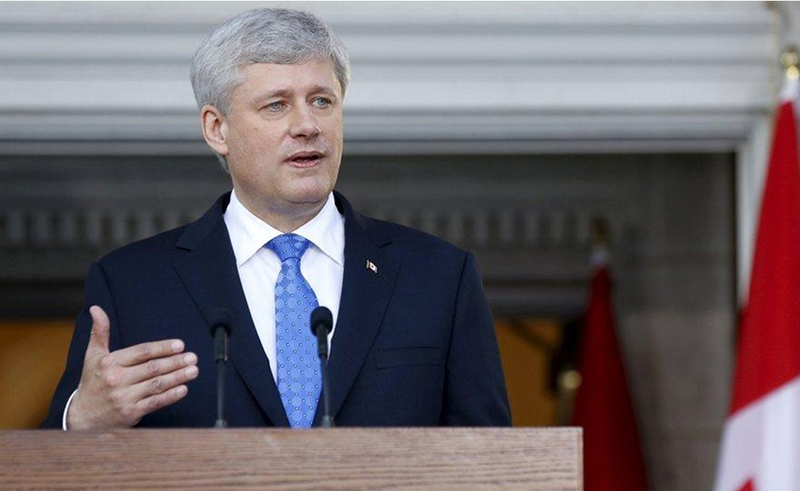 Canada
Canada
Ex-Canadian PM Stephen Harper urges Canada to stop cultivating divisive Khalistanis, Jihadists
In a candid critique that has reignited debates over Canada’s immigration and foreign policy, former Prime Minister Stephen Harper called on the nation to cease harboring divisive groups such as Khalistanis and jihadists.
Harper, who led Canada from 2006 to 2015, emphasized the urgent need to reassess the country’s stance on these organizations amidst deteriorating relations with India.
Harper made these remarks during an event organized by the Abraham Global Peace Initiative (AGPI), where he engaged in a discussion with AGPI founder and CEO Avi Benlolo. In a column for the National Post, Benlolo quoted Harper responding to the question, “What happened to Canada?” The former leader did not mince words, stating, “We must stop cultivating Jihadists, antisemites, Khalistanis, Tamil Tigers, and other divisive groups. When it comes to our immigration system, we are going to have to ask ourselves some hard questions about how we screen people.”
Harper’s comments come at a time when Canada’s relationship with India has hit a rocky patch, a stark contrast to the flourishing ties during his administration.
Under Harper’s leadership, bilateral relations were strong, with significant cooperation in trade, security, and cultural exchanges.
However, recent tensions have strained this partnership, particularly after the assassination of Hardeep Singh Nijjar, a designated Khalistani terrorist, which Trudeau’s government alleges was orchestrated by Indian agents—a claim India has vehemently denied.
Benlolo added that both he and Harper agree that while most Canadians reject divisive ideologies, there is a pressing need to ensure that immigration policies do not inadvertently introduce individuals who harbor age-old hatreds. “We cannot start importing age-old hatreds onto our streets. We need to do something about this — we cannot let it continue,” Harper asserted.
The current Prime Minister, Justin Trudeau, has faced criticism for perceived favoritism towards Khalistani groups, which some argue have undue influence within his government. Earlier this month, Trudeau acknowledged the presence of Khalistani supporters in Canada during Diwali celebrations on Parliament Hill.
He clarified, “There are supporters of Khalistan in Canada, but they do not represent the Sikh community as a whole. Similarly, supporters of the Modi government in Canada don’t represent all Hindu Canadians.”
The diplomatic rift intensified after the Nijjar killing, with Trudeau accusing India of involvement without presenting concrete evidence, leading India to demand proof.
Trudeau later admitted that Canada only possesses intelligence on the matter, without sharing specific evidence with Indian officials.
Harper’s remarks at the AGPI event signal a potential shift in the national conversation about Canada’s role in fostering or restraining divisive elements within its borders.
As the country grapples with these complex issues, the former Prime Minister’s call to action underscores the delicate balance between upholding multiculturalism and ensuring national security.
The debate continues as Canadians and policymakers weigh the implications of Harper’s recommendations against the backdrop of strained international relations and internal community dynamics.
The path forward remains uncertain, but Harper’s outspoken stance adds a significant voice to the ongoing discourse on Canada’s identity and its future direction.
(Photo and Text courtesy: Khalsavox.com)
Support Our Journalism
We cannot do without you.. your contribution supports unbiased journalism
IBNS is not driven by any ism- not wokeism, not racism, not skewed secularism, not hyper right-wing or left liberal ideals, nor by any hardline religious beliefs or hyper nationalism. We want to serve you good old objective news, as they are. We do not judge or preach. We let people decide for themselves. We only try to present factual and well-sourced news.







